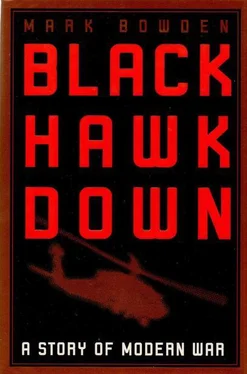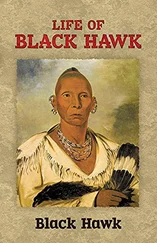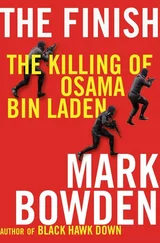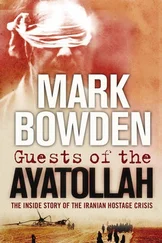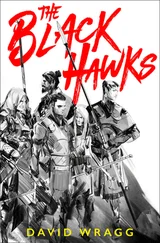Mark Bowden - Black Hawk Down
Здесь есть возможность читать онлайн «Mark Bowden - Black Hawk Down» весь текст электронной книги совершенно бесплатно (целиком полную версию без сокращений). В некоторых случаях можно слушать аудио, скачать через торрент в формате fb2 и присутствует краткое содержание. Город: New York, Год выпуска: 1999, ISBN: 1999, Издательство: Atlantic Monthly Press, Жанр: nonf_military, на английском языке. Описание произведения, (предисловие) а так же отзывы посетителей доступны на портале библиотеки ЛибКат.
- Название:Black Hawk Down
- Автор:
- Издательство:Atlantic Monthly Press
- Жанр:
- Год:1999
- Город:New York
- ISBN:978-0871137388
- Рейтинг книги:3 / 5. Голосов: 1
-
Избранное:Добавить в избранное
- Отзывы:
-
Ваша оценка:
- 60
- 1
- 2
- 3
- 4
- 5
Black Hawk Down: краткое содержание, описание и аннотация
Предлагаем к чтению аннотацию, описание, краткое содержание или предисловие (зависит от того, что написал сам автор книги «Black Hawk Down»). Если вы не нашли необходимую информацию о книге — напишите в комментариях, мы постараемся отыскать её.
Black Hawk Down — читать онлайн бесплатно полную книгу (весь текст) целиком
Ниже представлен текст книги, разбитый по страницам. Система сохранения места последней прочитанной страницы, позволяет с удобством читать онлайн бесплатно книгу «Black Hawk Down», без необходимости каждый раз заново искать на чём Вы остановились. Поставьте закладку, и сможете в любой момент перейти на страницу, на которой закончили чтение.
Интервал:
Закладка:
He knew by the time the assault force took off that afternoon that the Americans were headed for the Bakara Market, and that after they fast-roped in they would not be able to come back out on helicopters. That meant the Americans would be sending a column of vehicles to take them out. Before the Rangers had even roped down to Hawlwadig Road, militiamen were preparing to erect ambushes and roadblocks on the streets around the market.
All Somalian employees at the embassy compound were sent home early by their American employers.
“Something has happened,” Abdikarim was told. “You should go home.”
He lived with his family between the K-4 traffic circle, a heavily traveled intersection that was just north of the Ranger base and south of the Bakara Market. The fight was roiling when he left the embassy compound, but there were still buses running on Via Lenin. He could hear the sound of gunfire, and the sky was thick with helicopters speeding low over the rooftops. There were bullets cracking in the air over his head when he got home. He found his father at home with his two brothers and sister. They were all in the courtyard of their home with their backs against a concrete wall, which was the place they always went when bullets started to fly.
It seemed to Abdikarim that there were a hundred helicopters in the sky. The shooting was continuous. Aidid’s militia fought from hundreds of places in the densely populated neighborhood. So there were bullets everywhere.
He found that he grew accustomed to the shooting after a while. At first he had crouched down and pressed himself against the wall, but after an hour or so he was restless and moving around the house, looking out windows. Then he ventured outside.
Some of his neighbors told him the Rangers had captured Aidid. He needed to find out what was happening, so he ran up toward the market. He had relatives who lived just a few blocks from the market, and he was eager for news of them. With all the bullets and blasts, it was hard to believe anyone in the market area had not been hit.
When he got close to the shooting, there was terrible confusion on the streets. There were dead people on the road—men, women, children. Abdikarim saw up the street an American soldier lying by the road, bleeding from the leg and trying to hide himself. When a woman ran out in front of Abdikarim, the American fired some shots in their direction. The woman was hit but got off the street. Abdikarim ran around a corner just as one of the Little Bird helicopters flew down the alley, firing. He pressed himself against a stone wall and saw bullets run down the alley, kicking up dust straight past him.
He told himself that coming out to see had been a bad idea. After the helicopter had passed, a group of Somalian men with rifles came running down the alley, toward the corner where they could shoot at the American.
Abdikarim ran to the house of a friend. They let him in, and he got on the floor with everyone else. There was shooting all that night, and they did not sleep at all.
KASSIM SHEIK Mohamoud’s little burial convoy got to the cemetery just before dusk. Sounds of gunfire crackled over the city. There were many people at the cemetery digging holes for the newly dead.
As they carried the bodies of Ismail Ahmed and Ahmad Sheik, a helicopter swooped down at them and passed so close that they dropped the bodies and ran away. They hid behind a wall, and when the helicopter continued on, they returned and picked up the bodies.
They carried them to a place on a hill and lay the bodies on the ground and began to dig. They dug until another helicopter buzzed down at them. In fright they ran.
Kassim went back out at 3 a.m. with the men and finished the job. There were many others digging. Mogadishu had become a city of the dead.
CHAPTER 22
A Ranger’s Plea for Help As the Body Count Climbs
December 7, 1997
SGT. KENNY THOMAS was just a few feet away when Earl Fillmore went down. Thomas had been firing down an alley. He was one of about 70 Rangers and D-boys fighting their way on foot to Cliff Wolcott’s downed Blackhawk an hour into the mission. Thomas happened to be looking right at Fillmore when suddenly the back of Fillmore’s little hockey helmet blew out.
He saw Fillmore pitch forward on his face. The sight of the tough, confident Commando sergeant stretched out motionless with his nose in the dirt horrified Thomas. As Fillmore was dragged from the line of fire, Thomas went over to Sgt. First Class Sean Watson.
“He needs a Medivac [medical evacuation] or he’s going to die,” Thomas said.
“There’s no way to get him out by helo [helicopter]. No way anybody’s getting in here,” Watson said.
It was dawning on the men who had moved from the target building toward the crash site that they were now cut off from help. They weren’t even sure how far they were from Wolcott’s bird. They had split haphazardly into several groups, each pinned down somewhere near the crash site. No one was in charge. Rangers answered to Ranger officers, and Commando commandos answered to their own tight chain of command.
The rescue convoy that was supposed to meet them at the crash site had become hopelessly lost. Shredded by enemy fire, it was about to give up and turn back. The Little Bird gunships buzzing overhead couldn’t open fire on Somalian gunmen for fear of hitting American soldiers scattered all around. With two Blackhawks shot down already, no helicopter could safely land to evacuate the mounting number of wounded.
It was too late for Fillmore. He was dead. Thomas realized it, and he broke down sobbing.
Then Pfc. Peter Neathery was hit at the same wall where Fillmore had been shot. Neathery had been on the ground, working his big M-60 gun when he screamed and rolled away, clutching his right arm. Pfc. Vince Errico took over the M-60, and seconds later he let out a yelp. He, too, had been hit in the right arm. He joined Neathery on the ground. Both were moaning and writhing.
Spec. Richard Strous, a medic, dashed across the street to tend Errico and Neathery, but then he gestured wildly. He’d forgotten his medical kit. The men against the opposite wall all looked at one another. After some discussion, it was decided that Sgt. Jeffrey Hulst would run the kit across. He darted about halfway out into the road and flung the bag. Strous ran back out and retrieved it, then went to work on the two wounded Rangers.
On the same street, Capt. Mike Steele was on the ground, taking cover behind a tin shack. The big Ranger commander had edged up into the same concentrated field of fire that had felled Fillmore and Neathery. He was talking on the radio. Beside him on the ground was his lieutenant, James Lechner.
Sgt. Norm Hooten, a Commando team leader, tried to warn them away. Hooten was standing in the doorway of a courtyard, waving frantically. Steele saw him, but he put up his hand, gesturing for Hooten to wait until he had finished with the radio.
A spray of bullets kicked sand into Steele’s eyes. Lechner tried to roll out of the way. Steele saw rounds tear holes through the tin wall behind them, and he heard Lechner scream.
Steele was still rolling when he saw Hooten waving him toward the courtyard. The captain got up and ran for the doorway. There was a lip at the base of the entrance and he tripped over it, sprawling into a small courtyard head-first.
“We’ve got to get Lechner!” Steele shouted.
He stood to run back out, but Commando medic Bart Bullock had already dashed out. He and another soldier dragged Lechner through the doorway. The lieutenant’s shin had been shattered. He was howling with pain.
Steele grabbed the radio microphone. Shouting, his words delivered in gasped phrases that sharply contrasted with the even voices of the pilots and airborne commanders watching in aircraft high above. Steele didn’t even pretend to be calm:
Читать дальшеИнтервал:
Закладка:
Похожие книги на «Black Hawk Down»
Представляем Вашему вниманию похожие книги на «Black Hawk Down» списком для выбора. Мы отобрали схожую по названию и смыслу литературу в надежде предоставить читателям больше вариантов отыскать новые, интересные, ещё непрочитанные произведения.
Обсуждение, отзывы о книге «Black Hawk Down» и просто собственные мнения читателей. Оставьте ваши комментарии, напишите, что Вы думаете о произведении, его смысле или главных героях. Укажите что конкретно понравилось, а что нет, и почему Вы так считаете.
